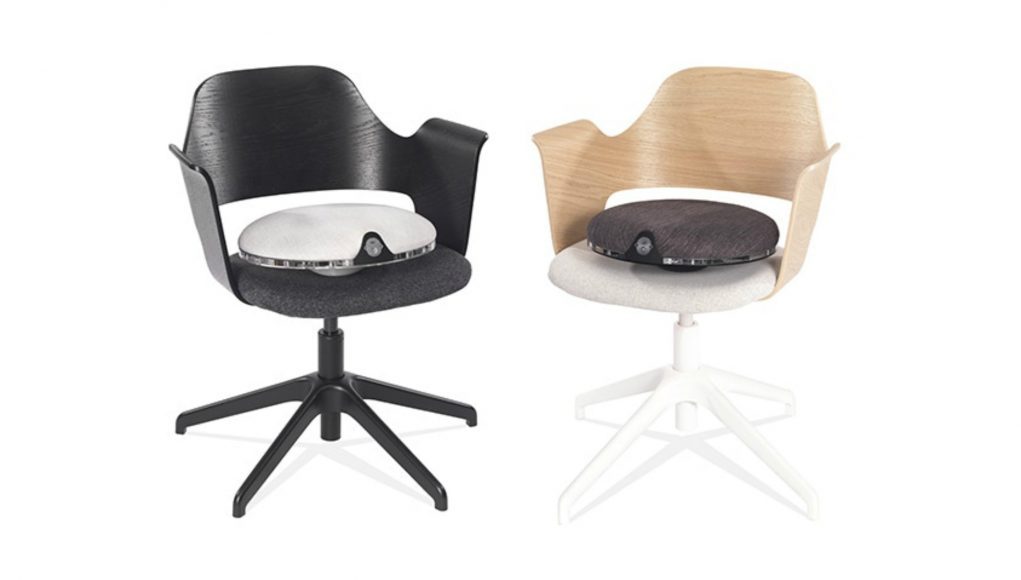Bristol, UK-based designer Joe Ryan launched his first Kickstarter back in 2015, the VRGO chair locomotion device, which saw a modest £22,100 (~$27,000) in crowdfunds. Now, a smaller form factor version of the device is being launched through a new Kickstarter campaign, the VRGO Mini.
Update (September 5th, 2019): VRGO Mini is now officially funded, surpassing its £20,000 goal with a little over 20 days to spare. There are still plenty of open slots for the Super Early Bird backer tier, which is priced at £119 (~$145).
The original article announcing VRGO Mini follows below:
Original Article (August 28th, 2019): The Kickstarter is searching for £20,000 (~$24,400) in funds. As an ‘all or nothing’ campaign, the project will need to reach the full amount before the campaign’s end on September 26th, 2019. At the time of this writing, the campaign is a little less than half-way there at nearly £7,000.
Here’s how it works: the VRGO Mini is a device that sits on top of your chair, which lets you locomote through VR by using a ’tilt-to-move’ scheme. It uses an inertial measurement unit (IMU), which is necessarily comprised of an accelerometer, gyroscope and magnometer, which tells the game which direction the user is turning or tilting.
Essentially, it’s like a 3dRudder that you sit on, requiring you to lean in the desired direction and working on the same principle: if you involve enough of your body in a physical movement that directly translates to in-game locomotion, you’re less likely to experience the disconnect that causes the dreaded flop sweats of motion-related sickness.
Unlike 3dRudder though, VRGO Mini can come with integrated haptics, which is an optional funding tier starting at £149 (~$180). The absolute cheapest price (without haptics) is set at £119 (~$145), a bit more expensive than the standard PCVR-compatible 3dRudder is today, which comes in at $99.

VRGO Mini is said to support a wide variety of devices including all SteamVR-compatible headsets, mobile VR headsets via gamepad emulation, PSVR (using Cronusmax dongle), as well as non-VR games through keyboard emulation.
The Kickstarter is promising “over 100 VR games and experiences” supported at launch, and is said to arrive as early as March 2020.
The device itself is promised to support up to 150 kg (~330 lbs), and deliver up to eight hours of continuous gameplay provided by its internal battery, which can be quick charged in an hour’s time.
Check out the Kickstarter page here for more information.







